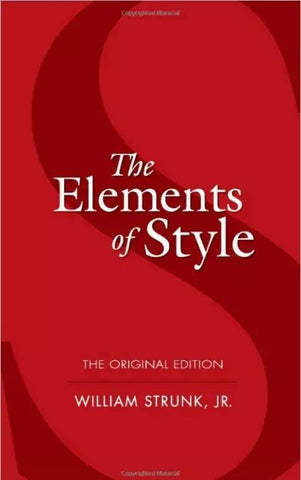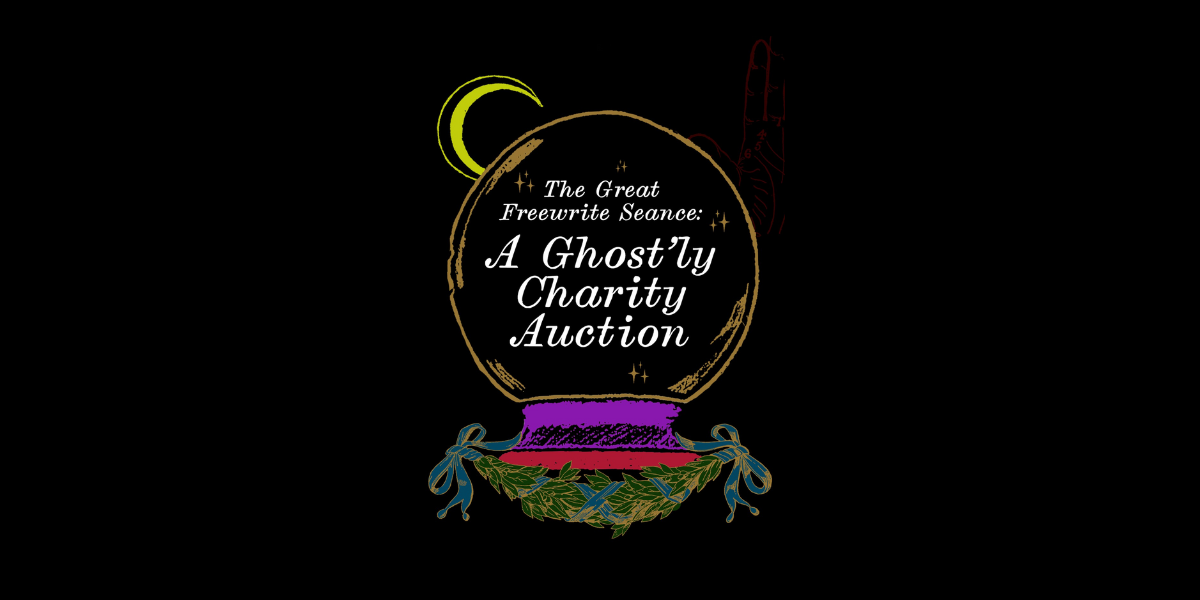Today’s guest post is by Matt Grant. Matt is a Brooklyn-based writer and editor. His work has appeared in Literary Hub, Book Riot, HuffPost, and BookBrowse. Find Matt online, or follow him on Twitter and Facebook.
As a writer, as with any form of art, you need to constantly hone your craft. Education plays a big role in self-improvement, but you don’t have to be an MFA candidate to keep learning. You can pay for classes (which often cost and arm and an leg), or try to find free options online.
One great way to find free (or at least cheap!) advice you can learn at your own pace is to read books on writing. Many prominent writers, publishers, English professors, and grammarians have written books on their craft intended to help writers improve their craft. And who better is there to learn from than the experts?
Below are nine books to add to your shelf today that will help you in all phases of your writing journey.
Reading Like a Writer,Francine Prose
Technically a book on reading, Prose’s book is written with writers in mind. Her entire argument is that before there was such a thing as creative writing instruction, the only way writers learned their craft was from reading other writers. Prose’s practical and straightforward book will give you a deeper appreciation for good literature in general, and what it takes to write good literature specifically. She has sections on sentences, paragraphs, narration, character, dialogue, and more. Along the way, she stocks her advice with examples from literary titans, even including an entire section at the end called “Books to be Read Immediately.”
How to Read Literature Like a Professor,Thomas C. Foster
Have you ever read a “great” novel and felt like you’re missing out on a hidden layer of meaning? If subtext often goes over your head and you have a hard time deciphering metaphors, this book may be for you. Foster, a professor of English at University of Michigan-Flint, has provided a fun and easygoing guide to “reading between the lines.” With chapter titles like “Nice to Eat You: Acts of Vampires,” and “It’s My Symbol and I’ll Cry if I Want to,” Foster’s book is a fun, lighthearted take on literary analysis. It’s a helpful guide for how to deconstruct motifs, themes, images and other symbols in great novels, which you can turn around and apply to your own work.
The Elements of Style, William Strunk, Jr. and E.B. White
No writer’s library is complete without a stylebook, and The Elements of Stylehas been thestandard stylebook since 1918. You probably recognize E.B. White as the author of beloved children’s classics Charlotte’s Weband Stuart Little.William Strunk, Jr. was his English professor at Cornell University. Strunk wrote the original version, which White later expanded. This is an extremely practical book to carry around, just over 100 pages, and it easily fits in your pocket. It focuses on usage, form, and even lists commonly misspelled words.
Bird by Bird: Some Instructions on Writing and Life, Anne Lamott
Lamott’s wonderful book is both a memoir and writing advice guide. Her emotional and honest take on the writing life is refreshing. In it, she tells a story from her childhood about her ten-year-old brother freaking out over a huge report on birds that he’d had three months to complete. Overwhelmed by the task and unsure of where to begin, Lamott recalls her father putting his arm around her brother and telling him to just take it “bird by bird.” The same advice applies to writing, Lamott says, as writers take their work one word, sentence, and book at a time. What’s more, Bird by Birdwill disabuse you of any notions of overnight success in literature.
Several Short Sentences About Writing,Verlyn Klinkenborg
Klinkenborg is a creative writing professor at Yale University, and his short, breezy book is one of best books on writing I’ve ever read. Written in short, snappy sentences laid out like poetry, Several Short Sentences About Writing aims to have writers focus on writing good, clear sentences. And that’s it. Klinkenborg argues that great sentences will lead to great writing, and that good sentences can make even the most boring and mundane subject seem fascinating. He encourages writers to think of each sentence as its own entity on the page, separate from everything that comes before and after it. At the end, he includes a section of bad sentence examples, culled from his years as a writing professor. I’m just glad he wasn’t mine!
On Writing Well, William Zinsser
Zinsser’s On Writing Wellis a pretty classic college textbook for writing classes, so if you slept through English, now might be a good time to revisit it. As a former reporter for the New York Herald Tribuneand the author of 17 nonfiction books, Zinsser’s area of expertise is nonfiction. The first two sections of his book are a more narrative version of The Elements of Style,but the third focuses on different forms nonfiction writing can take. Zinsser shows what goes into good interviews, memoir writing, sports reporting, and travel writing. This volume is essential reading for anyone wishing to write good, compelling nonfiction.
On Writing: A Memoir of the Craft, Stephen King
If you think Stephen King is enjoying a renaissance right now with the film versions of The Dark Towerand Itin theaters, you don’t know his work very well. King is one of the most influential and iconic authors of the 20th century. His stamp is everywhere you look and has been for a long time. In this acclaimed book that is “part memoir, part master class, by one of the bestselling authors of all time,” King shares the habits and practices that have solidified his place in American literary history. King’s prose is personable and reads like you’re talking to a good friend in person. On Writingis great for King fans and aspiring writers alike.
Story: Style, Structure, Substance, and the Principles of Screenwriting, Robert McKee
Now wait a minute, you might be asking, how is a book on screenwriting helpful for prose writers? Well, read McKee’s brilliant Storyand you’ll see why. This is not just a book about screenwriting, but how all great stories are structured. After an introduction that takes you through the principlesof good storytelling – why do people find certain story elements compelling? – McKee breaks down, using examples from some of the most influential films in cinematic history, essential story elements. There’s the Inciting Incident, Three-Act story design, and the crisis, climax, and final resolution. If none of this sounds familiar, pick up this essential guide for writers of any genre who want to tell well-structured, compelling stories.
Bonus: What We See When We Read, Peter Mendelsund
Another book on reading? Absolutely! All writers are good readers. This delightful book, told mostly through pictures, is all about the phenomenologyof reading – how words, which have no concrete images attached to them, can nevertheless conjure images in a reader’s brain. It’s an essential reminder that the writer’s work is bringing images to life with our words.
When in doubt, a writer’s first stop should always be books. While we don’t all have personal, constant access to writing experts to ask their advice and opinions, we do have the next best thing: their books. Not to mention all the literary classics throughout history that you can learn a lot from just by reading. So don’t hesitate - head to your local library or bookstore today and pick out some of these titles!
There you have it, the books by the pros to get you writing like a pro. Which books on writing are your favorites? Which books did we miss? Let us know in the comments!
 Matt Grant loves to write about writing, business, and all forms of popular culture – books, film, and television. Matt started writing DVD reviews for Pop Matters in 2012, and in 2016, he followed through on a life-long dream by launching a part-time writing business at www.mattgrantwriter.com. Since then, Matt’s work has appeared in Literary Hub, Book Riot, HuffPost, and BookBrowse, and he has several ongoing clients. His first personal essay, Swimming Lessons, is being published in LongReads at the end of August. Matt is also currently hard at work on his first novel, a comedic take on fantasy tropes for young adults. When not writing or reading, Matt works in youth development as an after-school program director for one of the largest middle schools in Manhattan. Matt lives in Brooklyn with his wife, Katelyn. You can find him online at www.mattgrantwriter.com, on Twitter @mattgrantwriter, and on Facebook @mattgrantwriter.
Matt Grant loves to write about writing, business, and all forms of popular culture – books, film, and television. Matt started writing DVD reviews for Pop Matters in 2012, and in 2016, he followed through on a life-long dream by launching a part-time writing business at www.mattgrantwriter.com. Since then, Matt’s work has appeared in Literary Hub, Book Riot, HuffPost, and BookBrowse, and he has several ongoing clients. His first personal essay, Swimming Lessons, is being published in LongReads at the end of August. Matt is also currently hard at work on his first novel, a comedic take on fantasy tropes for young adults. When not writing or reading, Matt works in youth development as an after-school program director for one of the largest middle schools in Manhattan. Matt lives in Brooklyn with his wife, Katelyn. You can find him online at www.mattgrantwriter.com, on Twitter @mattgrantwriter, and on Facebook @mattgrantwriter.






































